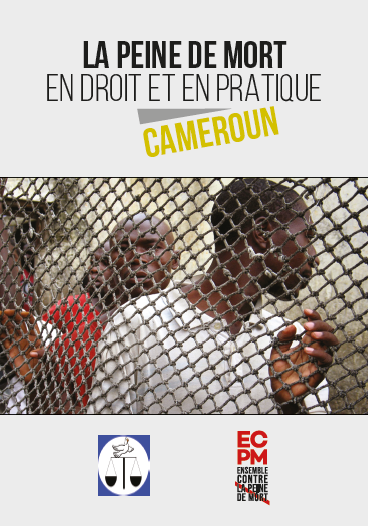Vote on a resolution for a universal moratorium on the application of the death penalty: A key date for stakeholders
This December, the United Nations will vote on the 10th resolution for a universal moratorium on the application of the death penalty. Since the World Day takes place two months before this vote, many abolitionist organizations seized the occasion to encourage States to support this resolution. Although it is not legally binding, the resolution commits States to the international community.
Europe
Declaration by the Young European Ambassadors for the Abolition of the Death Penalty
Following the “Advocacy and Awareness for the Abolition of the Death Penalty” workshop organized by ECPM, the Council of Europe, and the German Coalition to Abolish the Death Penalty, held from 19 to 21 June 2024 in Strasbourg, the young ambassadors for the abolition of the death penalty published a declaration. The aim of this workshop was to create a network of young ambassadors who will continue the fight for abolition worldwide.
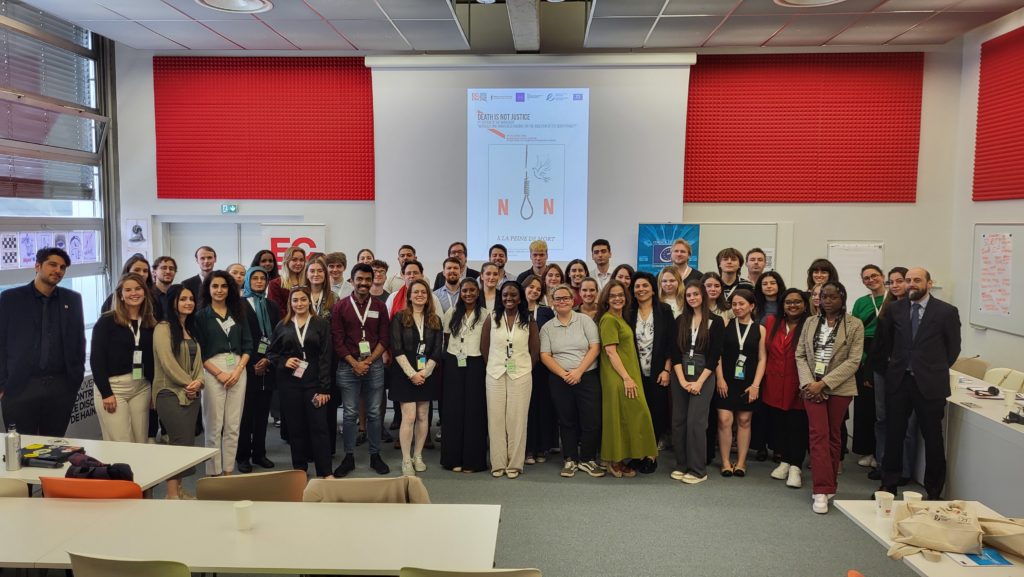
With universal abolition in their sights, the young ambassadors recalled the recent political events in Europe (such as the rise of populism and far-right parties and political instability in some states) , and called on governments, international institutions, and civil society to strengthen advocacy for abolition, promote human rights education, and support abolitionist networks. Reflecting this years theme, “The death penalty protects no one,” they declared :
One of the most frequently cited arguments in favour of the death penalty is its alleged deterrent effect on crime. However, this theory lacks empirical backing, as current scientific research fails to provide credible evidence that the death penalty effectively deters crime.
Algeria
Joint Statement from Members of the Maghreb Network Against the Death Penalty and 10 Other Civil Society Organizations (CSOs)
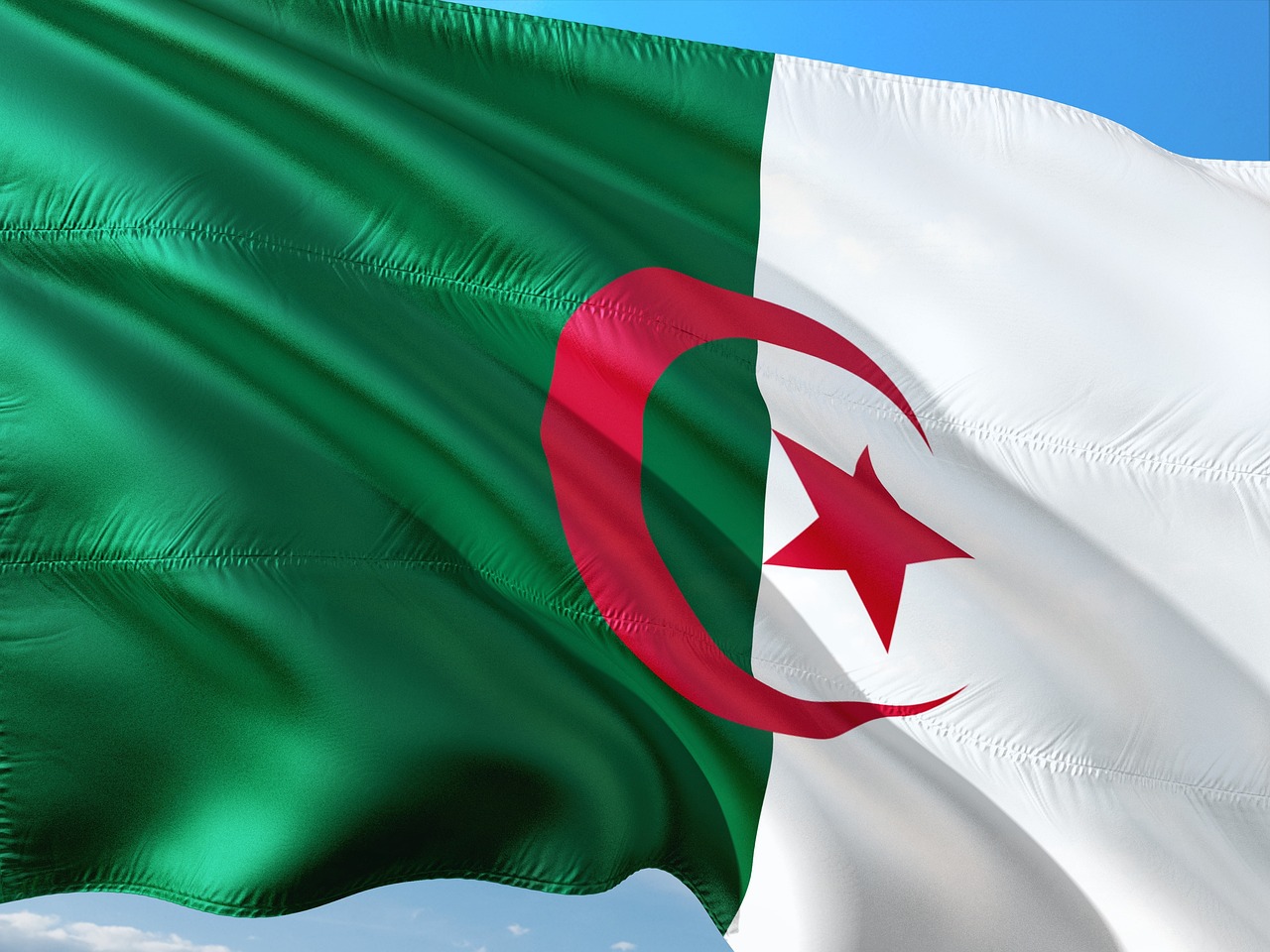
The Algerian League for the Defence of Human Rights, alongside the Tunisian Coalition Against the Death Penalty (members of the Maghreb Network Against the Death Penalty), ECPM, and 9 other CSOs, issued a joint statement urging the Algerian State to vote in favour of the moratorium resolution in December.
Saudi Arabia
Joint Statement from ECPM, ESOHR, ALQST, MENA Rights Group, Reprieve, Amnesty International, and Human Rights Watch
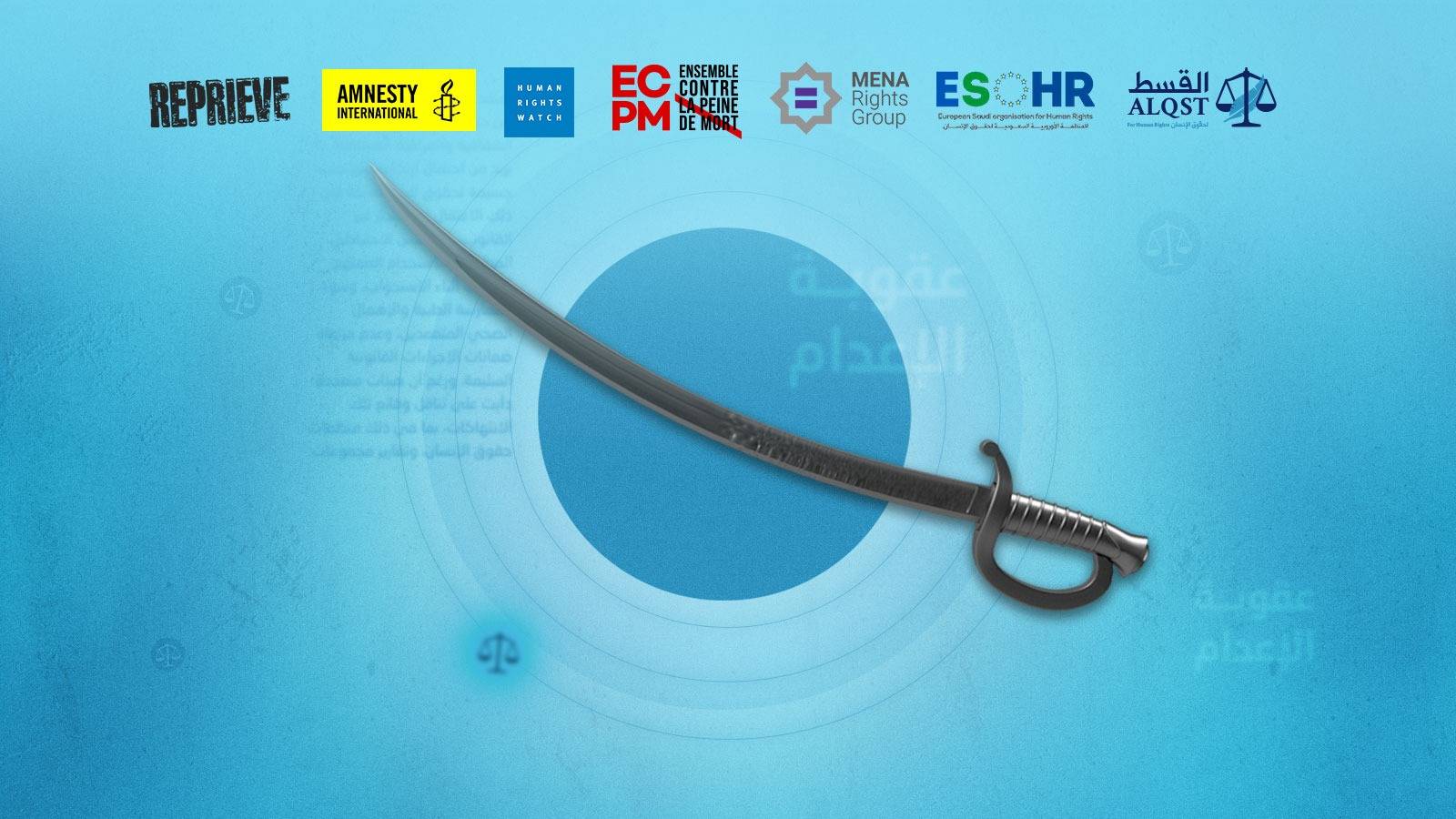
Since 2023, the international community has been sounding the alarm over the sharp increase in the execution rates in Saudi Arabia, with at least 172 pepople executed in 2023 (the third highest known figure globally in 2023), and over 200 executions in the first nine months of 2024 (data as of October).
During its Universal Periodic Review (UPR) in January 2024, Saudi Arabia accepted only one of 22 recommendations regarding the death penalty. ECPM along with 6 other NGOs, issued a press statement, calling on the Saudi authorities to open discussions with members of the international community in order to improve the human rights situation in the country.
Saudi Arabia has for years been among the countries carrying out the highest number of executions in the world. Yet, despite a pledge in 2018 from Saudi Arabia’s Crown Prince Mohammed bin Salman to reduce use of the death penalty, the rate of executions has continued to soar, apart from a relative lull during the coronavirus pandemic.
Morocco
Press Conference in Rabat Hosted by the Moroccan Prisons Observatory and the Moroccan Coalition Against the Death Penalty in Collaboration with the National Human Rights Council (CNDH)
Held at the headquarters of the National Human Rights Council, the event brought together over 100 attendees, including representatives from 17 diplomatic missions, civil society actors, and media outlets. Co-organized by ECPM, CNDH, the Moroccan Coalition Against the Death Penalty (CMCPM), and the Moroccan Prisons Observatory (OMP), the event also involved national abolitionist networks (parliamentarians, lawyers, educators, journalists, and entrepreneurs). With a de facto moratorium in place for 30 years, Morocco is a key state in the pursuit of universal abolition.
The conference was chaired by Amina Bouayach, President of the CNDH, and featured a number of players involved in the abolitionist struggle in Morocco. They included Nadia Benhida, Coordinator of the Network of Entrepreneurs Against the Death Penalty, who explained the importance and influence of entrepreneurs in promoting and raising awareness of human rights. Other speakers included Aurélie Placais, Director of the World Coalition Against the Death Penalty; Richard Sédillot, ECPM Board Member; and Christine Cassiers, Head of the Political, Press, and Information Section of the EU Delegation to Morocco.
The press conference also gave the floor to a young activist, Aymane Aouidi, representing the young ambassadors against the death penalty in Africa, who read their statement for the World Day.
We reaffirm our unwavering commitment to the abolition of the death penalty […] and call on all civil society actors, international organizations, and public institutions to intensify their efforts to achieve universal abolition and continue building a fairer and more humane world.
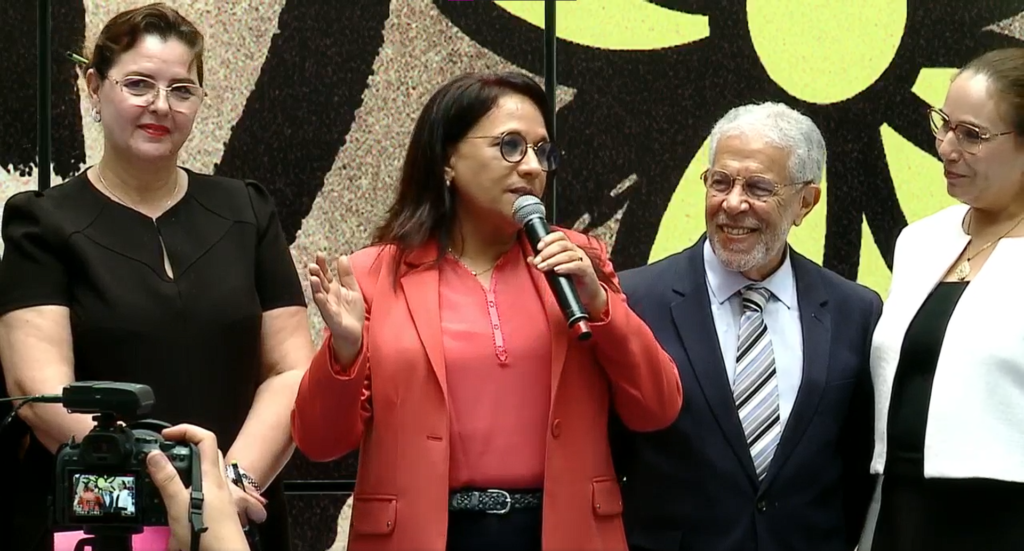
These young people from seven African countries participated in a workshop co-hosted by ECPM and Prison Insider as part of the 9th African University on Youth and Development (AUYD) held in Cidade Velha, Cape Verde, from 24 to 28 June. As part of the Council of Europe’s project to continue its fight for the abolition of the death penalty, this workshop followed the same format as the one organized by ECPM in Strasbourg.
Tunisia
Statement by the Tunisian Coalition Against the Death Penalty (CTCPM) and Radio Interviews by its President, Chokri Latif
Despite a de facto moratorium since 1991, Tunisian courts continue to issue death sentences. On the occasion of the World Day Against the Death Penalty, CTCPM published a statement emphasizing that:
“It is undeniable that the death penalty does not protect individuals or make societies safer but threatens human dignity and exacerbates social and economic inequalities by disproportionately affecting impoverished and marginalized groups. Finding effective and sustainable solutions requires prioritizing citizens’ concerns, addressing the root causes of crime and violence, and adopting a human security approach to resolving conflicts and creating safer societies.”
Furthermore, since 2012, Tunisia has consistently voted in favour of the United Nations resolution for a universal moratorium. CTCPM renewed its call for Tunisian authorities to maintain this position during the upcoming vote in December.
Chokri Latif, President of CTCPM, conveyed the key messages of this statement in multiple Tunisian radio interviews.
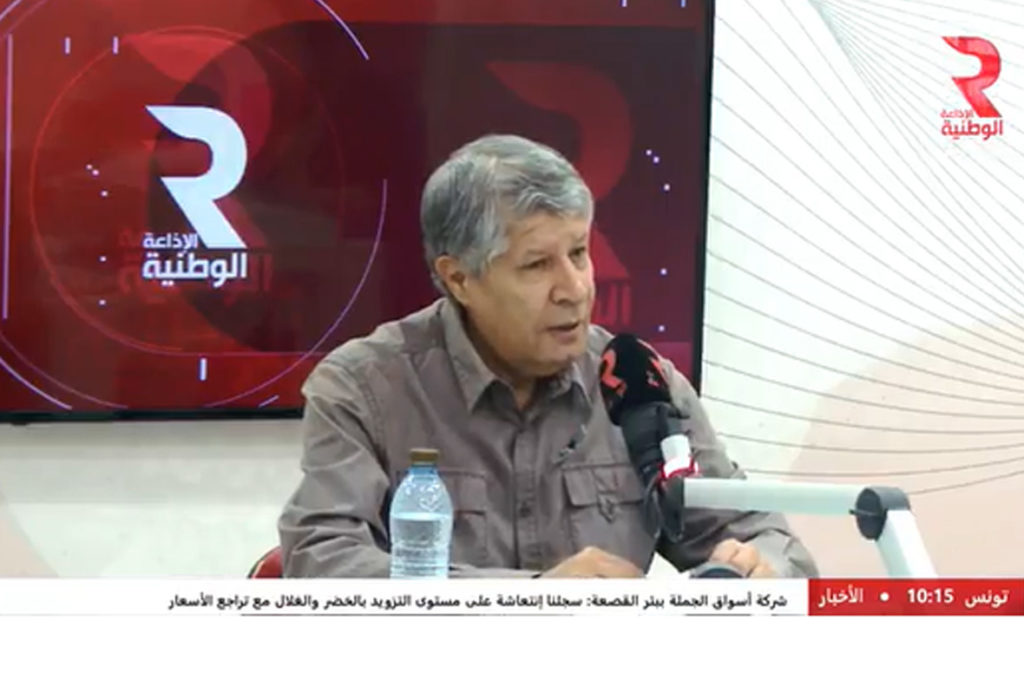
Indonesia
Publication of KontraS’ Annual Report on the Death Penalty
In collaboration with ECPM, KontraS has produced its annual report on the situation of the death penalty in Indonesia, analysing and compiling background information and data related to its application between October 2023 and September 2024. Following the presidential elections in early 2024 that brought a new president to power, the report also evaluates Joko Widodo’s record on the death penalty after ten years in office.
As is the tradition, the release of this publication was accompanied by a press release and a launch event on World Day Against the Death Penalty.
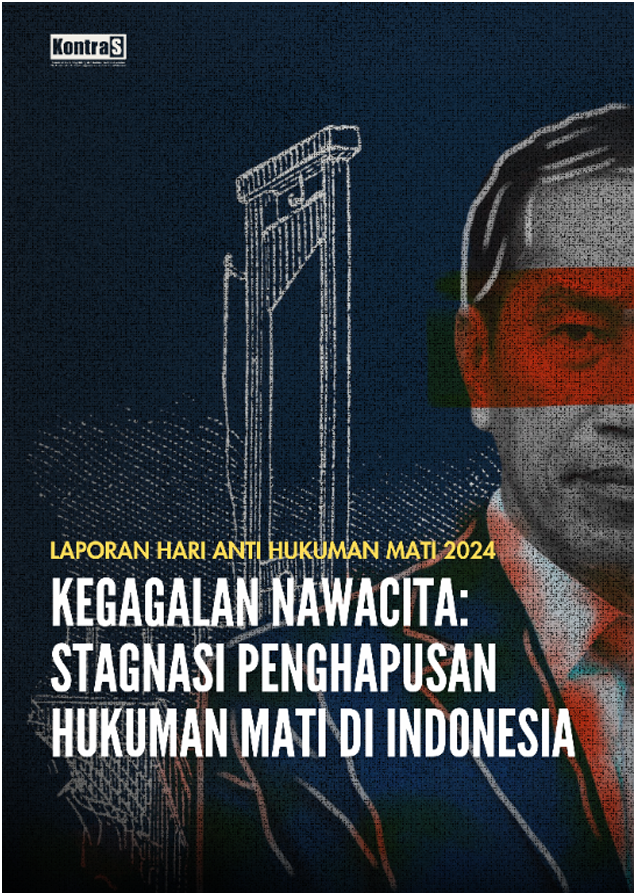
Iran
24-Hour Livestream Organized by Iran Human Rights and Video Capsules Published with ECPM Team Members
As part of the abolitionist movement “No Death Penalty Tuesdays,” supporting people sentenced to death and imprisoned in Iran, often in inhumane conditions, Iran Human Rights and the Global Campaign to Stop Executions in Iran organised a 24-hour livestream from October 8 to 9.
The initiative aimed to mobilize families of prisoners seeking justice, human rights organizations, civil and political groups, political activists, experts, and personalities from all over the world.
During this event, Raphaël Chenuil-Hazan (Executive Director of ECPM), Marie-Lina Pérez (Head of Africa-Asia), and Julia Bourbon Fernandez (Head of Middle East and North Africa – MENA) took part in the initiative through video capsules shared on the platforms of Iran Human Rights and ECPM.

Democratic Republic of Congo (DRC)
Conference in Kinshasa Organized by CPJ and ECPM
Titled “The Death Penalty Protects No One, Let’s Abolish It: The Challenges Faced by DRC Abolitionists After the Moratorium Lift,” the conference was held in Kinshasa.
In March of this year, the DRC officially lifted the moratorium on executions that had been in place since 2003, particularly for cases of treason within the military and urban banditry or terrorism. While Congolese authorities justify retaining the death penalty as a tool against impunity, especially in the context of war in the East of the country, the World Day Against the Death Penalty served as a critical reminder that capital punishment does not provide security and cannot be justified under the guise of “safety.”
The theme of this 22nd edition of the World Day Against the Death Penalty strongly resonated with the current situation in the DRC and contributed to the panel discussions by Christelle Vuanga, Member of Parliament and President of the Network of Parliamentarians Against the Death Penalty; Liévin Ngondji, President of CPJ and President of the Congolese Coalition Against the Death Penalty; Gilbert Ifwamba, Chief of Staff at the National Human Rights Commission; and Fabrice Basile, Deputy Head of Mission at the EU Delegation to the DRC.
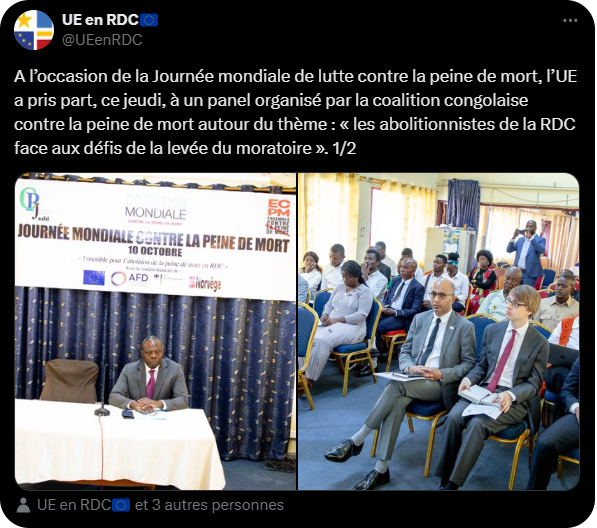
Cameroon
Celebration Ceremony in Douala Organized by Droits & Paix and ECPM
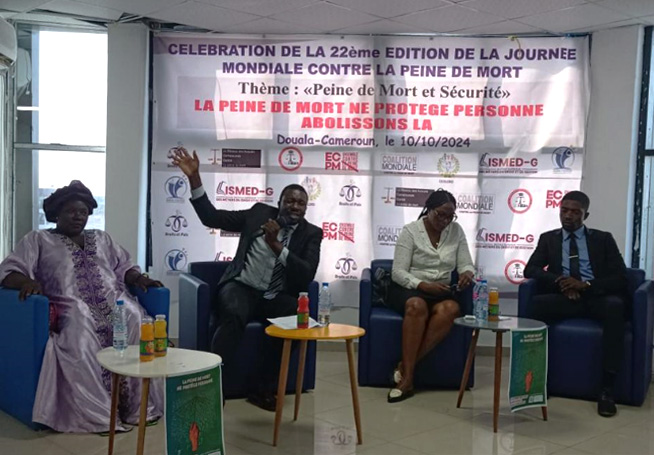
Droits & Paix and ECPM co-organized a conference to celebrate the 22nd World Day on October 10 in Douala, under the edition’s theme – “The Death Penalty and Security” – in partnership with the Network of Cameroonian Lawyers Against the Death Penalty (RACOPEM) and the Cameroonian association CESLORD.
Following several opening speeches, the thirty participants, including a number of students from the Higher Institute of Legal and Management Professions of Douala, were able to exchange with three lawyers from RACOPEM who shared their experiences of defending people sentenced to death.
The discussions were rich, especially with young students who were influenced by the idea that executions would help to relieve prison overcrowding.
To go further
Read the UN High Commissioner for Human Rights Statement for the World Day
With financial support from

